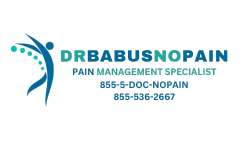Overview of Myofascial Pain Syndrome
Myofascial Pain Syndrome (MPS) is a condition characterized by the presence of trigger points, which are localized areas of muscle tightness and tenderness. These trigger points can cause pain and discomfort, often in a referred or radiating pattern. MPS can result from muscle overuse, trauma, or poor posture, leading to the development of knots or nodules in the affected muscles. Common symptoms include muscle pain, stiffness, and limited range of motion. The pain may be dull, aching, or sharp, and can be aggravated by physical activity or stress. Treatment for MPS typically involves a combination of therapies, such as trigger point injections, physical therapy, stretching exercises, and relaxation techniques. Medications, such as nonsteroidal anti-inflammatory drugs (NSAIDs) or muscle relaxants, may be prescribed to manage pain and reduce muscle tension. Lifestyle modifications, such as improving posture and incorporating stress management techniques, can also help alleviate symptoms and prevent future flare-ups. A comprehensive approach, tailored to the individual's needs, is important for effectively managing Myofascial Pain Syndrome.
Symptoms of Myofascial Pain Syndrome
Myofascial Pain Syndrome is characterized by the presence of trigger points, which are localized areas of muscle tightness and tenderness. Symptoms include muscle pain, stiffness, and limited range of motion. The pain can be dull, aching, or sharp, and may be felt locally or radiate to other areas. Trigger points can cause referred pain, meaning the pain is felt in a different location than the trigger point itself. Physical activity or stress can exacerbate the symptoms. It is important to note that the severity and specific symptoms can vary from person to person. Proper diagnosis and individualized treatment are necessary for managing and alleviating these symptoms effectively.
Causes of Myofascial Pain Syndrome
The most common causes of Myofascial Pain Syndrome (MPS) can include muscle overuse, trauma, poor posture, and stress. These factors can lead to the development of trigger points, which are localized areas of muscle tightness and tenderness. Trigger points can form knots or nodules in the affected muscles, causing pain and discomfort. Additionally, certain medical conditions, such as fibromyalgia, can contribute to the development of MPS. It is important to identify and address the underlying causes of MPS to effectively manage and alleviate symptoms. Lifestyle modifications, such as improving posture and managing stress, can also play a role in preventing and managing Myofascial Pain Syndrome.
Treatment Options for Myofascial Pain Syndrome
Treatment options for Myofascial Pain Syndrome (MPS) aim to alleviate pain, reduce muscle tension, and improve overall muscle function. Physical therapy is often a primary treatment approach, involving stretching exercises, manual therapy, and techniques like myofascial release to release tension in the affected muscles and improve flexibility. Trigger point injections with a local anesthetic or corticosteroid can help relieve pain and break up the trigger points. Dry needling is another technique that involves inserting thin needles into the trigger points to release tension and promote healing. Heat therapy, such as using hot packs or warm compresses, can help relax muscles and reduce pain. Medications such as nonsteroidal anti-inflammatory drugs (NSAIDs) or muscle relaxants may be prescribed to manage pain and reduce inflammation. In some cases, stress management techniques like relaxation exercises or cognitive-behavioral therapy (CBT) may be recommended to address any underlying stress or psychological factors contributing to MPS. It is important to work closely with a healthcare professional to develop an individualized treatment plan that addresses the specific needs and symptoms of MPS.
